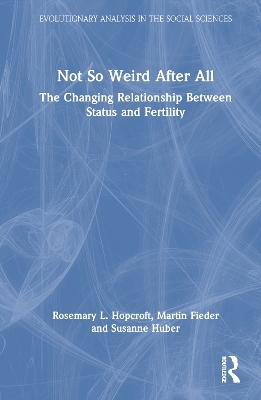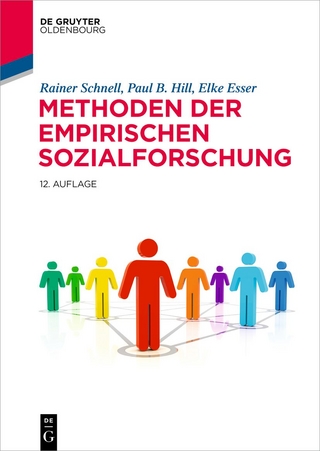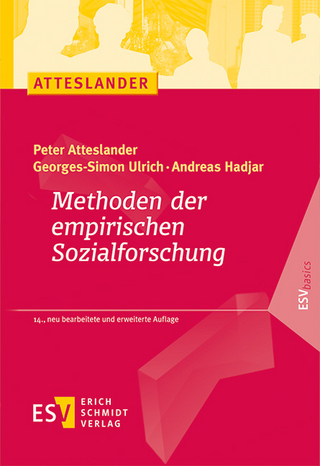
Not So Weird After All
Routledge (Verlag)
978-1-032-73257-2 (ISBN)
Rosemary L. Hopcroft is Professor Emerita of Sociology at the University of North Carolina at Charlotte, U.S. She has published widely in the areas of evolutionary sociology and comparative and historical sociology in journals including the American Sociological Review, American Journal of Sociology, Social Forces, Evolution and Human Behavior, and Human Nature. She is the author of Evolution and Gender: Why it Matters for Contemporary Life (Routledge 2016), editor of The Oxford Handbook of Evolution, Biology, and Society (2018) and co-author of The Handbook of Sex Differences (2023). Martin Fieder is Associate Professor of Evolutionary Demography at the University of Vienna, Austria. He works in the field of evolution, fertility, social status, religion, and behavioral genetics. He has published in the field of evolutionary anthropology, evolutionary demographics and behavior genetics in a wide range of international journals such as Evolution and Human Behavior, Proceedings of the Royal Society B, BMC Evolutionary Biology, American Journal of Human Biology, Biosocial Sciences as well as in The Oxford Handbook of Evolution, Biology, and Society (2018). Susanne Huber is Senior Research Fellow at the Department of Evolutionary Anthropology of the University of Vienna, Austria. She works on evolutionary explanations of human behavior, homogamy, and early life factor effects and has published in journals such as Proceedings of the Royal Society B, Evolution and Human Behavior, and Human Nature and in The Oxford Handbook of Evolution, Biology, and Society (2018).
1. The changing relationship between status and fertility 2. Evolutionary theory and the fertility behavior of humans 3. Sources of social status across human societies 4. Status and fertility in pre-industrial societies 5. Status and fertility in Europe and America during the demographic transition 6. Status and Fertility in East Asia during the demographic transition 7. Status and fertility in contemporary transitioning societies 8. The relationship between status and fertility in post-transition Europe and America 9. Additional factors influencing status and fertility 10. Not so weird after all
| Erscheinungsdatum | 28.03.2024 |
|---|---|
| Reihe/Serie | Evolutionary Analysis in the Social Sciences |
| Zusatzinfo | 2 Tables, black and white; 2 Line drawings, black and white; 2 Halftones, black and white; 4 Illustrations, black and white |
| Verlagsort | London |
| Sprache | englisch |
| Maße | 156 x 234 mm |
| Gewicht | 880 g |
| Themenwelt | Sozialwissenschaften ► Soziologie ► Empirische Sozialforschung |
| Sozialwissenschaften ► Soziologie ► Gender Studies | |
| Sozialwissenschaften ► Soziologie ► Makrosoziologie | |
| ISBN-10 | 1-032-73257-1 / 1032732571 |
| ISBN-13 | 978-1-032-73257-2 / 9781032732572 |
| Zustand | Neuware |
| Haben Sie eine Frage zum Produkt? |
aus dem Bereich


